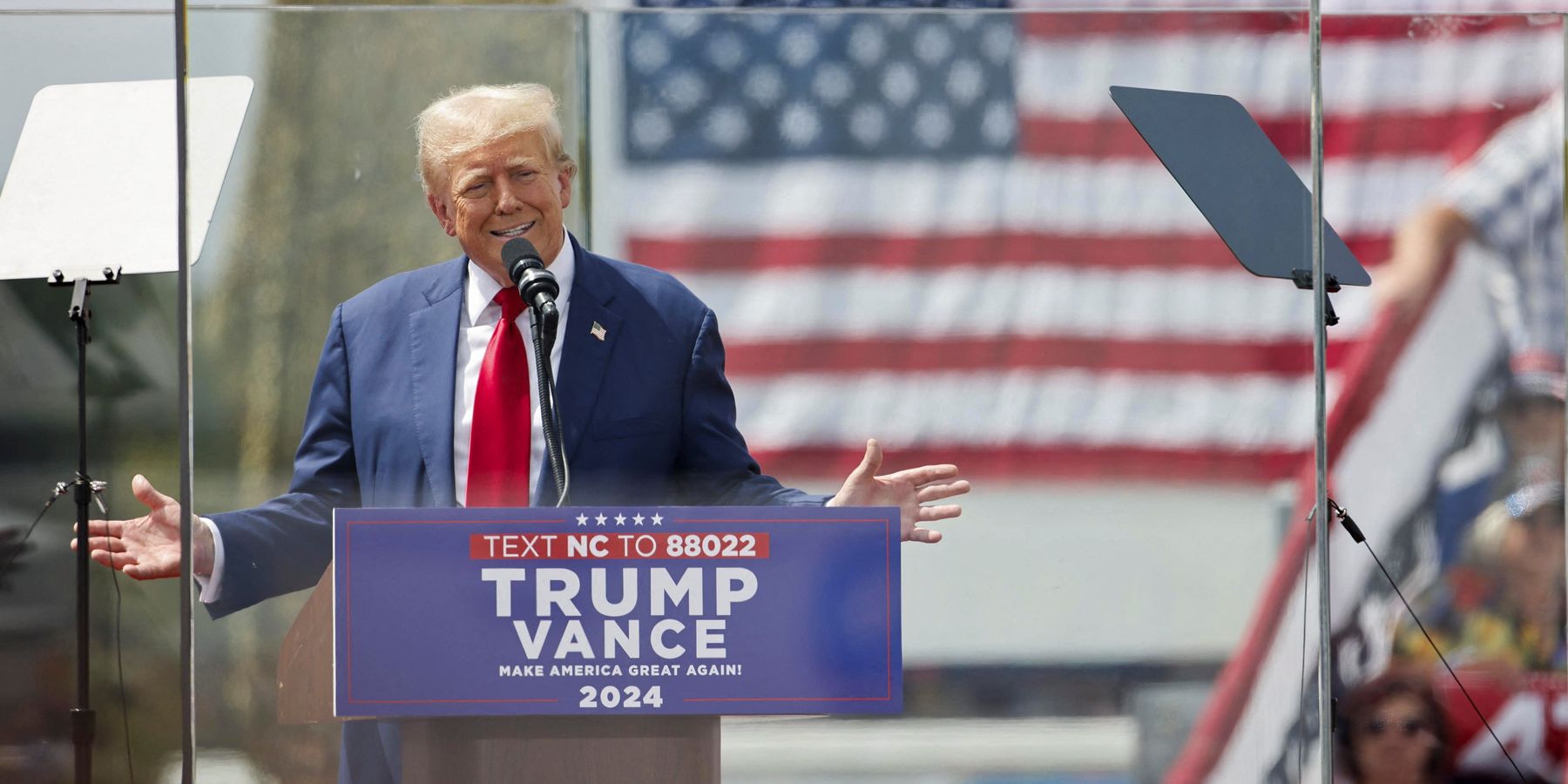Billed as a national security speech, former President Donald Trump nonetheless took to the stage in North Carolina on Wednesday and offered few specifics about what he would do about the major conflicts roiling the planet under his successor Joe Biden.
This was no more apparent than in his comments about Israel, which were pretty much non-existent.
Here they are in full (emphasis mine):
"We made peace in the Middle East with the Abraham Accords. And more, more, more, we did things like nobody ever heard of and we brought our troops, mostly back home... My attitude kept us out of wars. I stopped wars with phone calls. Russia should have never happened. With Ukraine would have never happened if I were president it would have never happened. Nope, there was no talk of that, it would have never, ever happened. With Putin, would have never happened. And Israel October 7 would have never happened. Iran would have never done that. They had very little money at that point. Now they're rich as hell, but Biden allowed that to happen.
Then shortly after: "Putin would have never gone into Ukraine. Israel would have never been attacked. Sad, sad situation. So many people are dead, so many people are gone. So many cities."
Trump spent the most his time on a past war, Afghanistan — specifically, Biden's ill-fated withdrawal in September 2021: "(The) incompetence of Kamala Harris and crooked Joe Biden delivered the most humiliating event in the history of our country and one of the biggest military disasters in the history of the world. As far as I'm concerned, no one will ever forget the horrifying images of their catastrophic retreat from Afghanistan."
As for Ukraine, a two-year European land war into which the U.S. has poured more than $175 billion: "If we win, I'll get that thing settled before I take the office. I'll get it settled as president-elect. I'll get that war stopped with Russia. Yeah, we'll get that stopped."
This is something he has said before many times, as he has said repeatedly that he's told Israel to "finish it" without expanding on what that means. He said the most on that subject last week when he spoke before Jewish donors in New Jersey, although most his remarks there were about antisemitism. On Israel's war in Gaza, in which more than 40,000 Palestinians have been killed, he declared, "I will give Israel the support that it needs to win, but I do want them to win fast, wouldn’t it be nice if they could win fast?” he said. “And we have to let them win fast. We will restore civility and peace to the Middle East.”
If people were looking for a blueprint, a doctrine, or even some guideposts on what Trump would do in a second term on foreign policy and national security, Wednesday's speech was certainly not it. (Trump's running mate JD Vance offered his own overview of a "Trump" approach to world conflict and statesmanship in his introductory remarks, saying at one point it is "one that stands for American interests, and it pursues those interests ruthlessly, but also carefully, with strong words and the strongest military in the world, but with great restraint to balance it out." )
But Wednesday's speech was leagues different from the remarks Trump delivered in 2016 at the Center for the National Interest in which he defined his candidacy as a stark departure from the neoconservatism of his party and said things like "the world must know that we do not go abroad in search of enemies, that we are always happy when old enemies become friends, and when old friends become allies."
Back then, he was reading from a script. Today, he was clearly veering from his prepared remarks, which, at one point, he even referred to on stage. It would have been great to see what was on that teleprompter.
- Trump v. Biden: The foreign policy face off ›
- What will Vance do for Trump's foreign policy? ›
- Finding a foreign policy beyond Biden and Trump ›
- Trump cabinet hopeful wants the 'Israel model' for US China policy ›
- Trump now faces 'out of control' conflict in the Middle East | Responsible Statecraft ›
















